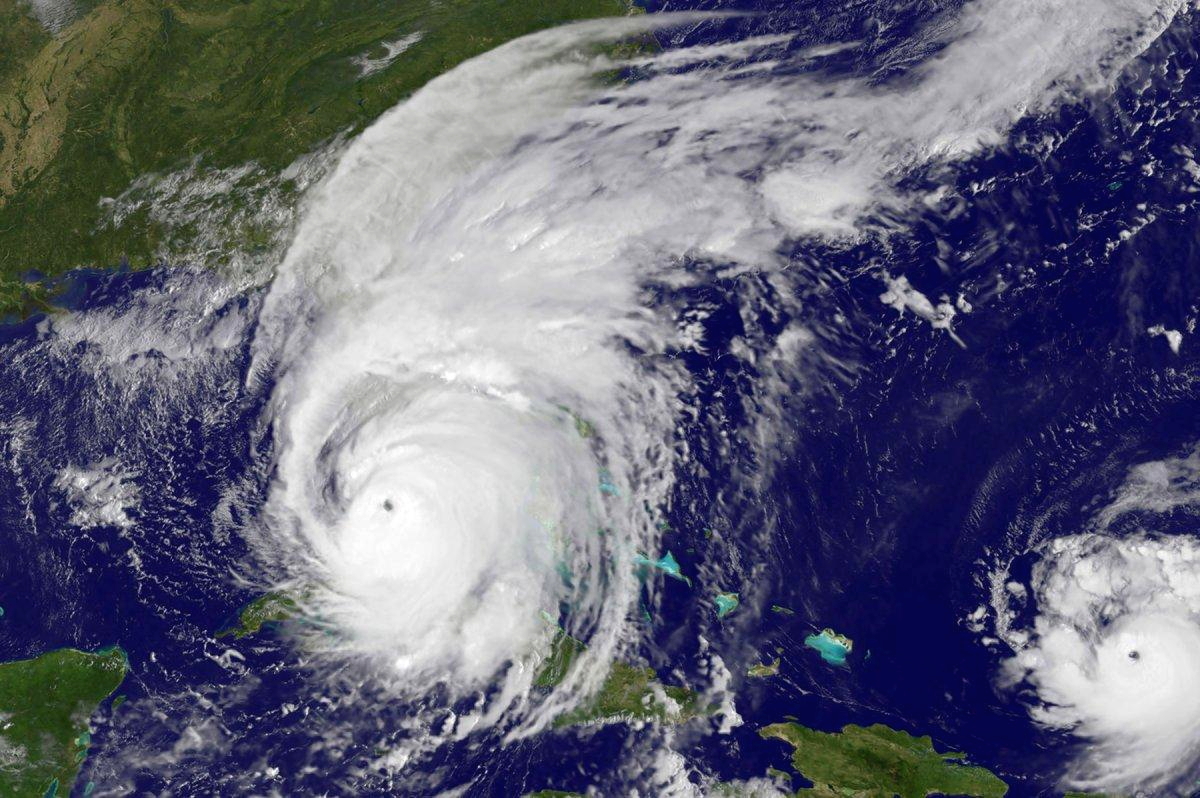Hurricane Irma (pictured above) hit the Atlantic Coast of the continental U.S. on Aug. 30, 2017. It caused $8 billion in damages in Florida and $64.76 billion overall. Courtesy of Wikipedia
By Kate Rickman
With three named storms in the Atlantic, this September will usher in the most active period of an otherwise relatively quiet hurricane season. You never know when a severe storm will spawn, so it is crucial to be prepared.
Guy Van Asten, campus safety and compliance officer, said “anything that de-escalates the confusion or stress” is a good idea.
It is important to have a plan of action to avoid as much chaos as possible. Last year, USF St. Petersburg residents were evacuated to the Tampa campus at the last minute.
Then-Regional Chancellor Sophia Wisniewska was ousted in September by system president Judy Genshaft over her handling of the evacuation.
“Last year was kind of unique,” said James Weed, campus emergency management director. “We know where the shortcomings were. If we get in that situation again, it will go a lot smoother.”
The campus and county have met to discuss how to prepare for another emergency.
“Timeliness is key,” said Michelle Penn, Van Asten’s assistant.
It is important to let your resident assistant know early if your evacuation plan may fall through so they can find another way to help you. If you are an off-campus student, check the county website and follow the news to find the closest community shelter to you.
“I can assure you we will not leave any student by themselves,” Weed said. “We’re going to take care of the students.”
If students want more training on how to be prepared, Van Asten said he is happy to provide more information.
“A lot of times we don’t get enough feedback,” he said.
Both Weed and Van Asten believe there needs to be more interaction with the Office of Disabilities to ensure safety accommodations for those in need. Students can help by communicating their needs early so they can be addressed before a state of emergency.
During severe weather, professors are encouraged to hold classes online. If you leave while the school is still open, let the professor know so they can work with you on any missed assignments. Excused absences will be at the professor’s discretion if there is no emergency evacuation.
Make sure to stock up on water, batteries and medication as needed.
Keep your vehicle fully fueled in case of an evacuation. USF St. Petersburg cannot close the school without approval from the county, which often doesn’t come until an evacuation is government-mandated.
Communication is vital – make sure you have an evacuation plan with friends or family and sign up for USF St. Petersburg MoBull alerts to stay informed.
Daily and accurate updates are found on the University Police Department website and on local news channels. Don’t rely solely on social media, where things can get blown out of proportion.
If your family is worried about where you will have to go and when, let them know where they can find information.
After evacuation, students are encouraged to stay home until the campus reopens. There is always a recovery period before students return. Unless you have nowhere else to go, it is a better idea to stay home or at your evacuation site.
More information about severe weather preparation can be found on the USF St. Petersburg and UPD websites, as well as on the back of every dorm door. There are also informational booklets available in the University Student Center, Residence Hall One and the library.



